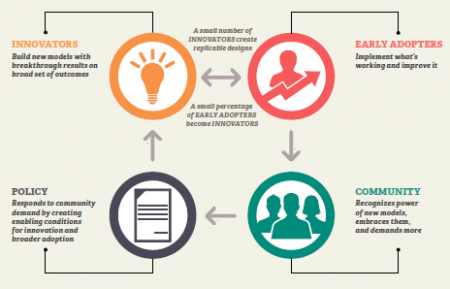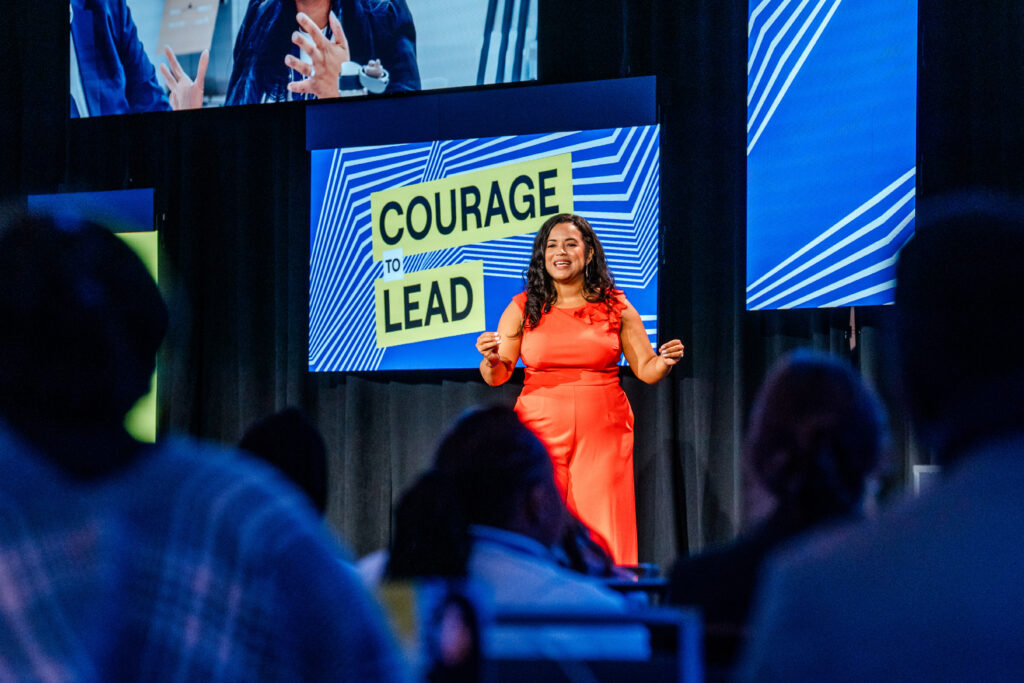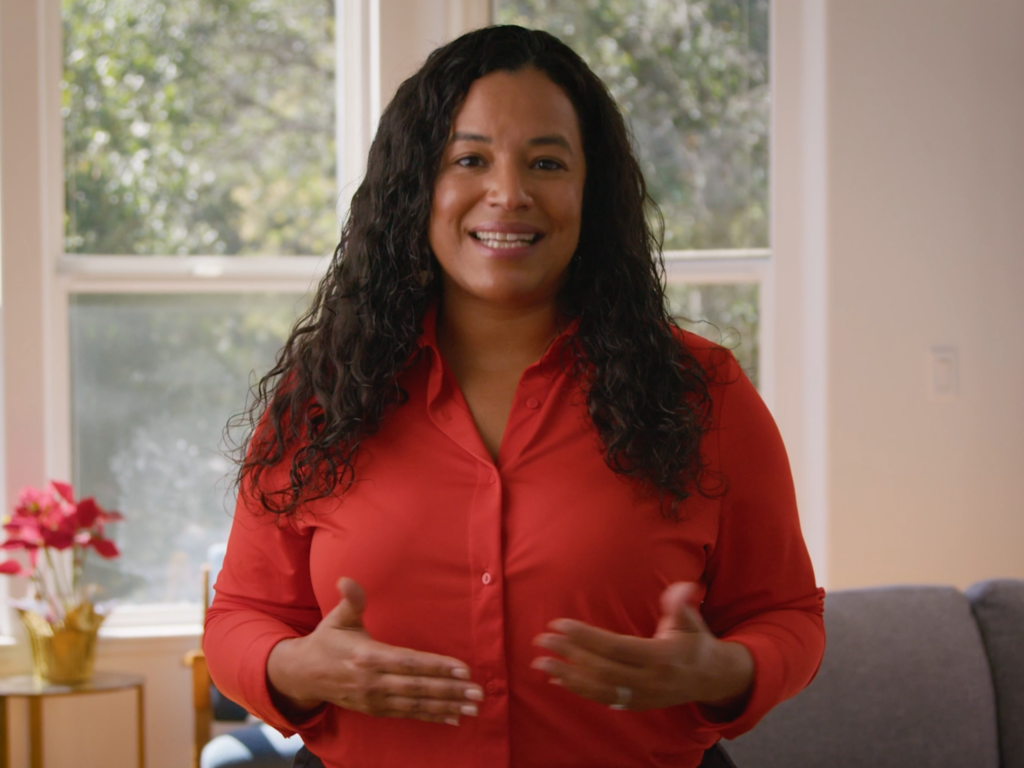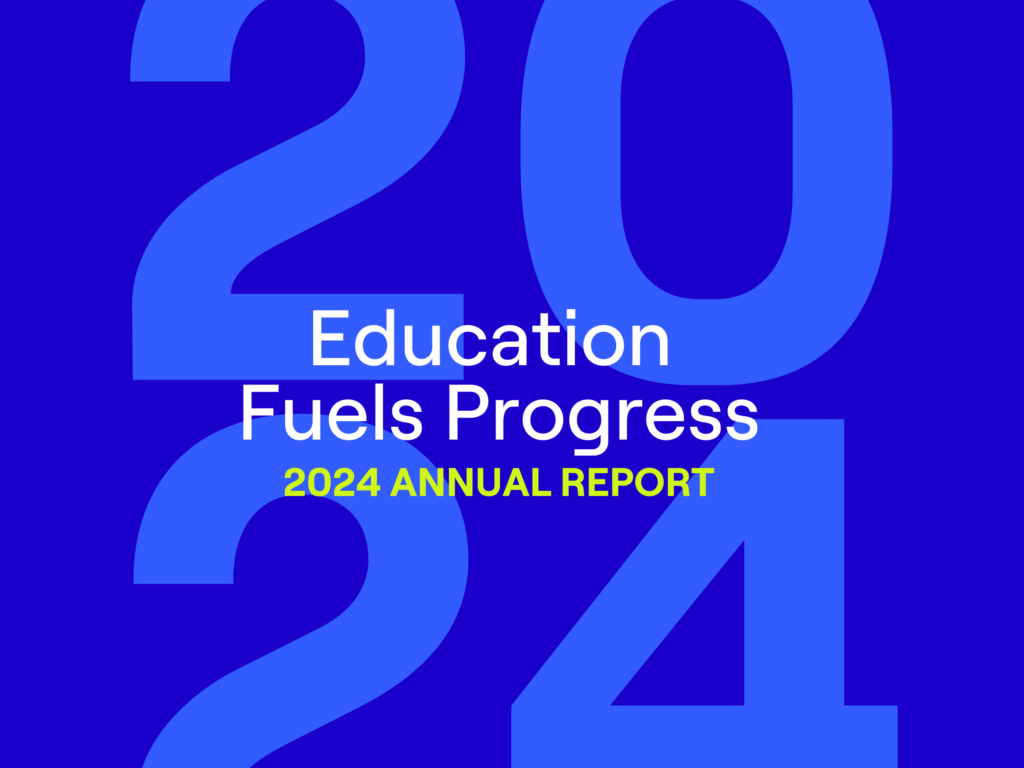Today, Diane Tavenner, Aylon Samouha, Jeff Wetzler and I released a paper called Dissatisfied Yet Optimistic: Moving Faster toward New School Models. Each of us has been working from different vantage points for a number of years to redesign schools for personalized learning by rethinking time, talent, and technology. Several months ago, we decided to try to write down what we believed in common about why better models of schooling are necessary, our vision for what they might look like, and a shared theory of change for how we might get there. “Dissatisfied Yet Optimistic” is the product of our collaboration and the hundreds of conversations we’ve had with students, teachers, parents, school leaders, funders and each other.
One early question that helped accelerate our work was “When it comes to improving schools, what should we be less patient about or perhaps more patient about?” Here’s where we landed:
- We must be far less patient about expanding our vision of what it means for students to be successful and developing effective ways of supporting and measuring this broader view. Doing well academically remains important, but young people need much more to realize their full potential in the short- and long-term. This includes building critical habits of success such as self-awareness, agency, drive, curiosity and empathy. Over the past few years, parents in many communities have become increasingly frustrated with a narrow focus on boosting reading and math scores, with many channeling their dissatisfaction as opposition to state tests. Our schools must be designed to help young people develop a full range of skills, habits, and mindsets that are necessary for academic, career, and life success beyond high school. And we need reliable ways of assessing them so that educators can adjust and improve, and so that families, communities, policy makers and funders can hold schools accountable for outcomes in ways that go beyond a compliance mentality.
- At the same time, we must be far more patient about the investment (time, money, and energy) needed to design, build and refine better models of schooling. There is compelling evidence from other sectors and our own that suggests a different approach will lead to better outcomes and economically sustainable models. Specifically, we need to make larger and longer investments in a small group of innovators and engage in a robust and coordinated set of activities to identify and support early adopters of the best designs that emerge from the work of the innovators.
We all came into the project believing that the industrial model of schooling wasn’t working well for anyone – our schools were designed for a very different time and purpose and are simply not able to prepare and inspire every young person to be successful over the course of their lives. Together we developed a common set of attributes for better school models based on our collective experience over the last five years. The schools of the future should:
- Start with learning goals that are broad, deep, and interdisciplinary across academic, cognitive and social-emotional aims; and, hold the highest of expectations for all students to meet these ambitious goals
- Give students the freedom and power to own their learning, choosing the pace and types of learning activities that work best for them, in service of their goals
- Personalize the learning experience to meet every student based on where she is, what she needs, and her goals and strengths
- Equip parents to be active partners with the school and with their children
- Foster a community of togetherness, with diverse groups of students, educators, and parents constantly sharing and working together
The paper describes and explains in detail our theory of change for how we might accelerate the development and spread of schools with these attributes. We developed a graphic that sums it up:
We close with some recommendations for actions different stakeholders might take and some commitments of our own. We hope you find something thought-provoking among the various ideas in the paper. If so, we would love to hear from you, either over email or in the comments section of this blog. We are eager to refine and strengthen the vision and theory in collaboration with many others working on fundamentally redesigning schools to help students reach an expanded definition of success.
![]()



